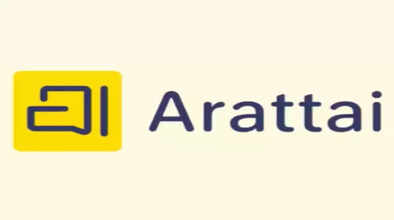Arattai: People were worried about the privacy of the Arattai app, but Sridhar Vembu put all the worries to rest by posting on X...

Ever since Indian company Zoho launched its messaging app, Arattai, to rival WhatsApp, it has been generating considerable buzz. Along with Arattai, Zoho has also created several other powerful apps to challenge giants like Google and Microsoft, such as Zoho Mail, Zoho Writer, Zoho Sheet, and Zoho Workdrive. Together, these apps form Zoho Workplace (or Zoho Suite), a fully Indian alternative to Google Workspace and Microsoft 365. However, some people have raised questions and concerns about privacy and data security. People were concerned about what happens to their data, where these apps are made, and who hosts them. To address these questions and misconceptions, Zoho CEO Sridhar Vembu himself posted on his official X (formerly Twitter) account and revealed the truth. Let's find out what he said.
Sridhar Vembu allays concerns about X.
Sridhar Vembu clearly stated in his tweet that there's a lot of misinformation circulating about where Zoho's products are developed, where the data is hosted, and who hosts it. He vowed to clear up all these doubts. Zoho itself retweeted his tweet, answering every major question people had.
1. Where are Zoho's products manufactured?
The primary question people had was where are Zoho's products manufactured. In response, the company explained that its global headquarters is in Chennai, India. They pay taxes on all their global revenue in India. As an Indian company, they have employees in over 80 countries and a strong presence in major markets like the US. This clearly demonstrates that Zoho is a global company with its heart beating in India.
2. Where is data stored?
This was a major question, as data privacy is crucial these days. Zoho has provided a clear answer. Indian customers' data is hosted in India, including cities like Mumbai, Delhi, and Chennai. Soon, data will also be hosted in Odisha.
Zoho has 18 data centers worldwide. Their policy is to host customer data in the country or region where it originates. The company's goal is to ensure that data from each country is protected within that country's jurisdiction. This demonstrates Zoho's emphasis on data localization.
3. What hardware do the services run on?
Zoho has stated that all of its services run on Zoho's own hardware, not on other companies' hardware. All services are based on software frameworks developed by the company itself. These are based on open-source technologies such as the Linux OS and the Postgres database, which are considered highly secure and reliable. This is a significant issue, as most companies host their data on cloud providers like AWS or Azure.
4. Products are not hosted on AWS, Azure, or GCloud!
Zoho has clearly stated that they do not host their products on AWS (Amazon Web Services) or Azure (Microsoft Azure). Specifically, Arattai is not hosted on AWS, Azure, or GCloud (Google Cloud). They only use certain services for regional switching nodes to process traffic faster. However, they do not store data on these platforms.
5. Why is the US office address on the App Store and Play Store?
Some may have noticed that Zoho's developer accounts on the App Store and Play Store list a US office address. Zoho clarified that these accounts were registered by a US employee for testing during the early days of those stores. The company never changed it, but that doesn't mean their data is hosted in the US.
This is what the tweet said
The company proudly concluded its tweet by stating, "Made in India. Made for the world." They emphasized that they stand by every word of it. This clarification from Zoho will surely dispel any doubts people may have had about Arattai and other Zoho products. This is a great example for Indian companies of how transparency can win customer trust.
Disclaimer: This content has been sourced and edited from Zee Business. While we have made modifications for clarity and presentation, the original content belongs to its respective authors and website. We do not claim ownership of the content.

